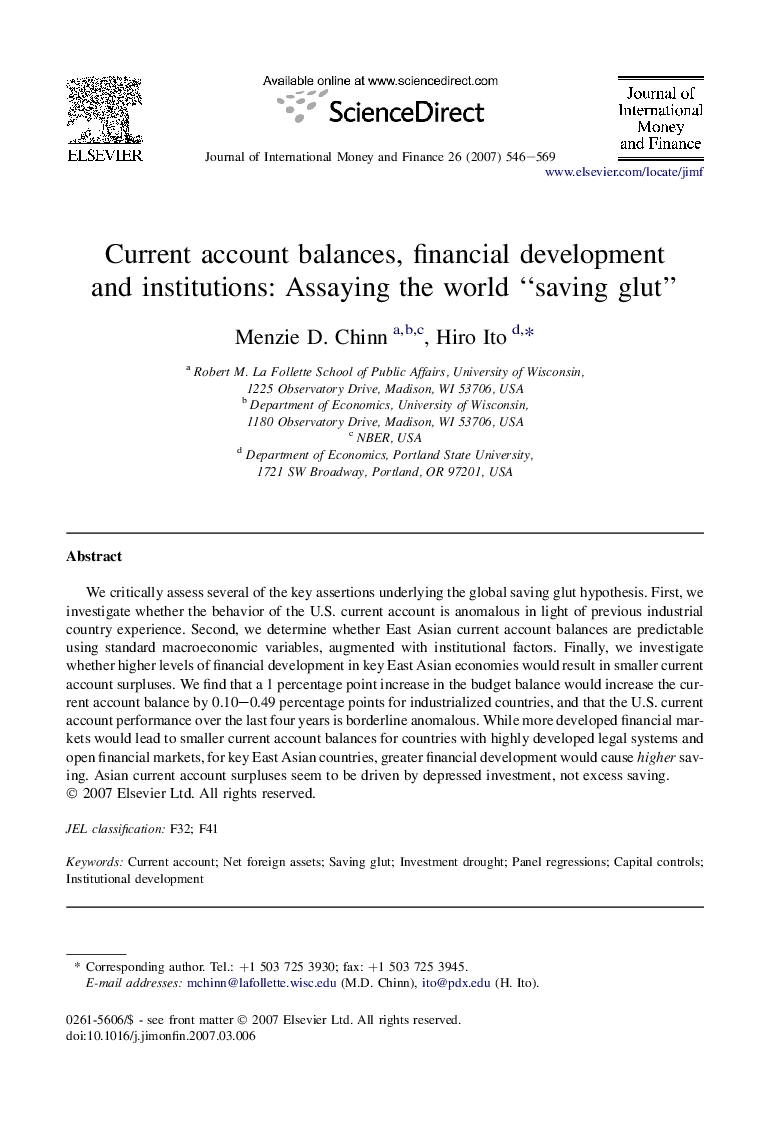| Article ID | Journal | Published Year | Pages | File Type |
|---|---|---|---|---|
| 964385 | Journal of International Money and Finance | 2007 | 24 Pages |
We critically assess several of the key assertions underlying the global saving glut hypothesis. First, we investigate whether the behavior of the U.S. current account is anomalous in light of previous industrial country experience. Second, we determine whether East Asian current account balances are predictable using standard macroeconomic variables, augmented with institutional factors. Finally, we investigate whether higher levels of financial development in key East Asian economies would result in smaller current account surpluses. We find that a 1 percentage point increase in the budget balance would increase the current account balance by 0.10–0.49 percentage points for industrialized countries, and that the U.S. current account performance over the last four years is borderline anomalous. While more developed financial markets would lead to smaller current account balances for countries with highly developed legal systems and open financial markets, for key East Asian countries, greater financial development would cause higher saving. Asian current account surpluses seem to be driven by depressed investment, not excess saving.
